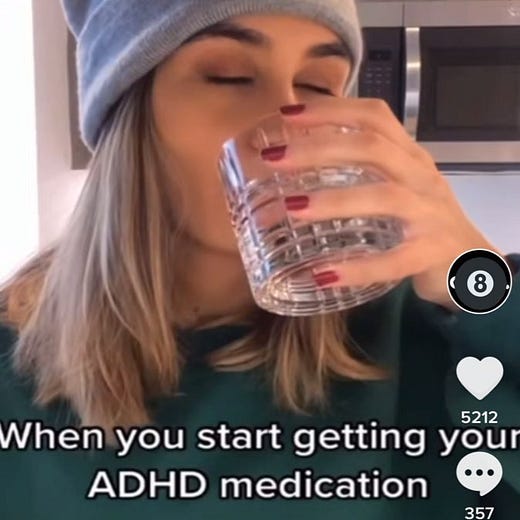🚀 Musk takes the reins at Twitter
Plus, telehealth startups reckon with a "new normal"
👑 Musk takes charge of Twitter. Elon Musk’s acquisition of Twitter has officially closed. What did he get done this week? He visited staff in the office, published an open note to Twitter advertisers, and announced that he’s forming a “content moderation council” to make decisions about things like reinstating banned accounts. Several executives left the company upon Musk’s arrival - including CEO Parag Agrawal, CFO Ned Segal, and CLO Vijaya Gadde.
🤔 Meta faces controversy. Mark Zuckerberg’s bet on the metaverse is under fire, with investors publicly calling for Meta to cut costs and limit investments into VR. Meta’s stock plunged 24% after a tough earnings report that included both a quarterly decline in revenue and continued losses from its Reality Labs unit. Zuckerberg has held firm in his belief that the company’s investments in the metaverse will be “fundamentally important for the future.”
🚘 Argo shuts down. Self-driving car startup Argo AI is ceasing operations, with many of its 2,000 employees being absorbed into Ford and VW (the company’s major investors). Argo was founded in 2016 and had raised $2.6B. Ford CEO Jim Farley said that “profitable, fully autonomous vehicles at scale are a long way off,” and Ford would likely buy versus build AV technology down the line.
📊 Tech earnings trickle in. It was a rocky week for public tech companies. Here’s the major updates:
Amazon turned a profit this quarter after two quarters of losses, but shares still fell on lower than expected holiday spending forecasts for Q4.
Alphabet reported a first-ever ad sales decline for YouTube (down 2% YoY), and a slow in revenue growth to 6%. The company will cut headcount growth by half.
Spotify beat expectations for user growth but reported a lower gross margin than expected, sending the stock price down.
Apple was one of the few companies to beat earnings expectations, with iPhone sales setting a new Q3 record.
what we’re following 👀
We're coming to Boston this week! Fill out this form if you're working on something and want to meet up.
AI can now write your tweets based on your profile.
Snap is cutting payments from their Spotlight creator fund.
Stock image company Shutterstock is getting into generative AI - but it will be reimbursing creators whose work is used to train models.
It’s almost a meme at this point - if you’re on TikTok, you’ve probably been advertised ADHD medication. The platform has been a hotbed for D2C telehealth companies like Done and Cerebral, that prescribe (or prescribed, in Cerebral’s case) stimulant medications like Adderall entirely virtually.
As a consumer, it’s a compelling value proposition. Getting an ADHD diagnosis and prescription from an IRL doctor can often be a lengthy, expensive, and difficult process, especially as an adult. You need a history of symptoms before the age of 12, and may even be asked to have friends or family members complete evaluations to validate the symptoms you describe. Many primary care doctors won’t diagnose adult ADHD, and will instead send you to specialists for further testing.
In comparison to this process, a 15-30 minute telehealth screening, diagnosis, and prescription feels incredibly easy. Why weren’t these startups more popular before now? Until recently, doctors were unable to prescribe controlled medication (like Adderall) online - they had to physically see a patient in person. The DEA lifted this requirement (called the Ryan Haight Act) in March 2020 in response to the pandemic, which allowed companies like Done and Cerebral to emerge.
Some have claimed that this led to a wave of “over-prescribing,” arguing that it became too easy to get access to Adderall. One telehealth patient described the process of getting a prescription to be “Scary easy. Sketchy as hell.” The DOJ launched an investigation into Cerebral’s prescribing practices in May, while the DEA is now investigating Done. And large pharmacies like Walmart and CVS are refusing to issue prescriptions for controlled substances from these startups.
Meanwhile, the waiver of the Ryan Haight Act also sparked the rise of startups offering another kind of medication: buprenorphine. This is a controlled substance used to treat opioid use disorder - it’s controlled because it is still an opioid drug, and comes with some risk of overdose if abused. Startups like Bicycle Health, Workit Health, and Ophelia will virtually prescribe this medication (alongside therapy and/or support groups) for people struggling with addiction. It’s a convenient alternative to in-person methadone clinics.
Now, all of these companies face an existential threat. When the COVID-induced federal “Public Health Emergency” comes to an end (which could be as soon as mid-January), the waiver for the Ryan Haight Act will expire - and the requirement to prescribe controlled substances in-person will return. What happens then?
Telehealth startups and even some senators are pushing to make it legal to continue prescribing controlled substances online. Several bills being evaluated by Congress, including the TREATS Act, would specifically waive in-person requirements for opioid use disorder medications. But if this legislation doesn’t pass, thousands (potentially millions?) of people will have to find an IRL provider who will write their prescription.
It’s a tricky one because you can’t lump all patients getting controlled substances via telehealth into one bucket. Some genuinely need one of these meds (whether it’s Adderall, buprenorphine, or something else) - and telehealth provides a convenient and accessible way to get it. If they’re no longer able to get their prescription online, they may simply stop taking their medication. Others don’t actually need the medication, and might be abusing or even re-selling it - and you could argue that eliminating the telehealth “loophole” for them is a net positive for society.
jobs 🎓
Studio - Biz Ops Associate (Remote)
Munich Re Ventures - Analyst, Associate (SF)
Modern Treasury - Growth Associate (SF)
Vial - Associate Product Manager (SF, Remote)
Joro - Product Manager (Oakland, Remote)
CAA - Strategy Associate (LA)
Insight Partners - 2024 Investment Analyst, Onsite Diligence & Strategy Analyst (NYC)
Parrot - Strategy & Ops Associate (NYC)
Square - Business Analyst (NYC)
Capsule - Business Operations Associate (NYC)
internships 📝
Toast - Competitive Intelligence Co-op (Remote)
HashiCorp - Research and Insights Intern (Remote)
Loop - Revenue Operations Intern (Remote)
Zipline - Product Marketing Intern (SF)
Pathlight - Product Designer Intern (SF)
Nationwide - Summer 2023 VC Intern (Columbus)
Insight Partners - Summer 2024 Analyst (NYC)
BCG Digital Ventures - MBA PM Intern (NYC)
Adobe - 2023 PM Intern (NYC)
Yieldstreet - Data Science Intern (NYC)
puppy of the week 🐶
Meet Spike, a ten-year-old Shih Tzu who lives in Seattle.
Spike’s hobbies include napping, going on hikes (sometimes he needs a bit of assistance), and going to the park.
Follow him on Instagram @spikey_dogg!
All views are our own. None of the above should be taken as investment advice. See this page for important information.






